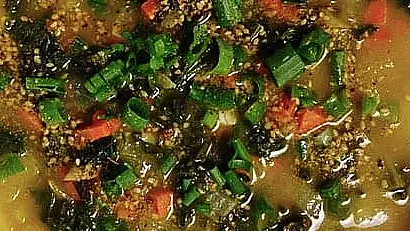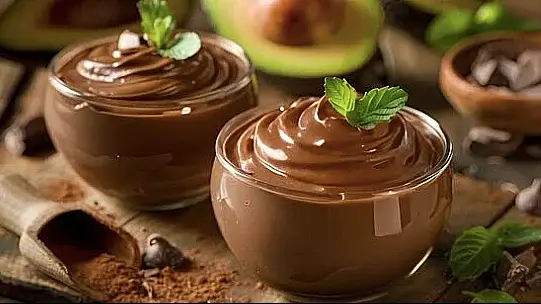The Role of Curcumin in Managing Fatty Liver Disease

Unlocking the Potential of Nature’s Golden Spice
As a medical doctor, I often encounter patients who are seeking natural alternatives to manage their health conditions. One memorable appointment involved a patient who walked in with a bright yellow bag of turmeric powder. “I heard this can fix my fatty liver,” she said, half-jokingly. I chuckled and replied, “Well, if only it were that simple! But let’s discuss the role of curcumin in managing fatty liver disease.” This interaction sparked a deeper conversation about how curcumin, the active compound in turmeric, may offer benefits for those grappling with fatty liver disease.
Fatty liver disease, characterized by excess fat accumulation in liver cells, has become increasingly prevalent worldwide. This condition can lead to inflammation and more severe liver damage if left unmanaged. As research continues to unveil the therapeutic properties of curcumin, understanding its role in managing fatty liver disease is becoming essential for both patients and healthcare providers.
What is Curcumin?
Curcumin is a polyphenolic compound derived from the rhizome of the turmeric plant (Curcuma longa). Known for its vibrant yellow color and distinct flavor, turmeric has been used in traditional medicine for centuries. Curcumin possesses potent anti-inflammatory and antioxidant properties, making it a subject of interest in various health conditions, including fatty liver disease.
The Role of Curcumin in Managing Fatty Liver Disease
The role of curcumin in managing fatty liver disease is gaining traction in scientific research. Several studies have indicated that curcumin may help reduce liver fat accumulation through various mechanisms:
- Anti-Inflammatory Effects: Chronic inflammation is a significant contributor to fatty liver disease. Curcumin has been shown to inhibit inflammatory pathways, reducing levels of pro-inflammatory cytokines. By mitigating inflammation, curcumin may help protect liver cells from damage.
- Antioxidant Properties: Oxidative stress plays a critical role in the progression of fatty liver disease. Curcumin acts as a powerful antioxidant, scavenging free radicals and reducing oxidative damage to liver cells. This protective effect can help maintain liver function and prevent further fat accumulation.
- Improvement of Lipid Metabolism: Curcumin has been found to influence lipid metabolism positively. It may enhance the breakdown of fats and improve insulin sensitivity, which is crucial for individuals with fatty liver disease. By promoting better lipid profiles, curcumin can help reduce fat buildup in the liver.
- Regulation of Gene Expression: Research suggests that curcumin may modulate the expression of genes involved in fat storage and metabolism. This regulation can lead to decreased fat accumulation and improved overall liver health.
Clinical Evidence Supporting Curcumin’s Benefits
Several clinical studies have explored the effects of curcumin on fatty liver disease:
- A Randomized Controlled Trial: One study involving patients with non-alcoholic fatty liver disease (NAFLD) found that those who took curcumin supplements experienced significant reductions in liver fat content compared to those who received a placebo. Participants also showed improvements in markers of inflammation and oxidative stress.
- Meta-Analysis Findings: A meta-analysis reviewing multiple studies concluded that curcumin supplementation significantly reduced liver enzymes associated with liver damage and improved lipid profiles among individuals with fatty liver disease.
These findings underscore the potential benefits of incorporating curcumin into dietary interventions aimed at managing fatty liver disease.
Practical Applications: Incorporating Curcumin into Your Diet
For individuals looking to harness the benefits of curcumin, several practical applications can be considered:
- Turmeric Supplements: Curcumin supplements are widely available and can provide concentrated doses of this beneficial compound. When choosing supplements, look for formulations that include black pepper extract (piperine), which enhances curcumin absorption.
- Culinary Uses: Incorporating turmeric into your diet can be an enjoyable way to benefit from curcumin. Add turmeric to smoothies, soups, stews, or stir-fries for added flavor and health benefits.
- Golden Milk: A popular drink made with turmeric, milk (or plant-based milk), and spices like cinnamon and ginger offers a delicious way to consume curcumin while enjoying its anti-inflammatory properties.
- Mindful Eating: Pairing turmeric-rich foods with healthy fats (like coconut oil or olive oil) can further enhance curcumin absorption due to its fat-soluble nature.
Lifestyle Considerations for Managing Fatty Liver Disease
While curcumin shows promise in managing fatty liver disease, it should be part of a comprehensive approach that includes lifestyle modifications:
- Balanced Diet: Focus on a diet rich in fruits, vegetables, whole grains, lean proteins, and healthy fats while minimizing processed foods and added sugars.
- Regular Exercise: Engaging in regular physical activity can help improve insulin sensitivity and promote weight loss—both crucial factors in managing fatty liver disease.
- Weight Management: Achieving and maintaining a healthy weight is essential for reducing fat accumulation in the liver.
- Avoiding Alcohol: Limiting or avoiding alcohol consumption is vital for protecting the liver from further damage.
Conclusion
Understanding the role of curcumin in managing fatty liver disease offers hope for individuals seeking natural ways to improve their condition. With its anti-inflammatory and antioxidant properties, curcumin may play a significant role in reducing fat accumulation and promoting overall liver health.
As more research emerges on this golden spice's therapeutic potential, it becomes increasingly clear that incorporating curcumin into dietary habits can be beneficial for those dealing with fatty liver disease. By combining this natural remedy with lifestyle changes like balanced nutrition and regular exercise, individuals can take proactive steps toward better liver health.
Share this article

Dr. Nico Pajes, MD
Dr. Nico Pajes is a board-certified internist and gastroenterologist with a focus on digestive health and internal medicine. See Full Bio.
-
1. Chirapongsathorn S Curcumin trend to improve alanine transaminase (ALT) in nonalcoholic fatty liver disease (NAFLD) with abnormal ALT. [DOI]
-
2. Wei Z, Liu N, Tantai X, Xing X, Xiao C, Chen L, Wang J. The effects of curcumin on the metabolic parameters of nonalcoholic fatty liver disease: a meta-analysis of randomized controlled trials.
-
3. Panahi Y, Kianpour P, Mohtashami R, Soflaei SS, Sahebkar A. Efficacy of phospholipidated curcumin in nonalcoholic fatty liver disease: a clinical study.
-
4. Rahmani S, Asgary S, Askari G, Keshvari M, Hatamipour M, Feizi A, Sahebkar A. Treatment of non-alcoholic fatty liver disease with curcumin: a randomized placebo-controlled trial.
-
5. Jazayeri-Tehrani SA, Rezayat SM, Mansouri S, Qorbani M, Alavian SM, Daneshi-Maskooni M, Hosseinzadeh-Attar MJ. Efficacy of nanocurcumin supplementation on insulin resistance, lipids, inflammatory factors and nesfatin among obese patients with non-alcoholic fatty liver disease (NAFLD): a trial protocol.
-
6. Chashmniam S, Mirhafez SR, Dehabeh M, et al. A pilot study of the effect of phospholipid curcumin on serum metabolomic profile in patients with non-alcoholic fatty liver disease: a randomized, double-blind, placebo-controlled trial.
-
7. Mansour-Ghanaei F, Pourmasoumi M, Hadi A, Joukar F. Efficacy of curcumin/turmeric on liver enzymes in patients with non-alcoholic fatty liver disease: a systematic review of randomized controlled trials.
-
8. White CM, Lee JY. The impact of turmeric or its curcumin extract on nonalcoholic fatty liver disease: a systematic review of clinical trials.
How Berberine Helps Reduce Liver Fat Accumulation Several patients visit my practice, often cautious about prescription medications and eager to...
Spinach and Kale Soup There’s something remarkably comforting about a hot bowl of soup—especially when it’s packed with vibrant greens like...
The Role of Coenzyme Q10 in Managing Fatty Liver Disease As a practicing physician, I frequently encounter patients seeking solutions for fatty liver...

You might enjoy more articles by
Dr. Nico Pajes, MD
 Disease
Disease Diets
Diets Recipes
Recipes Supplements
Supplements Management
Management Calculators
Calculators Quizzes
Quizzes Glossary
Glossary





















